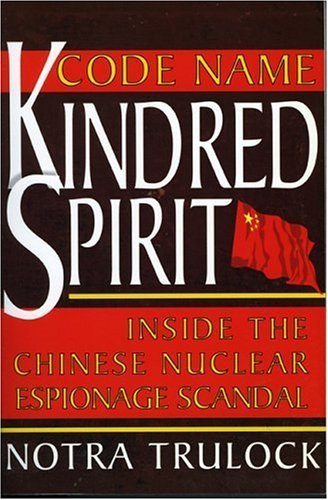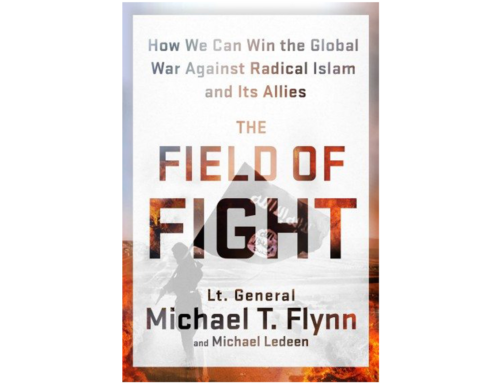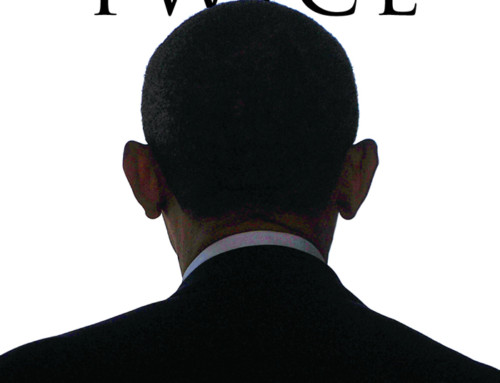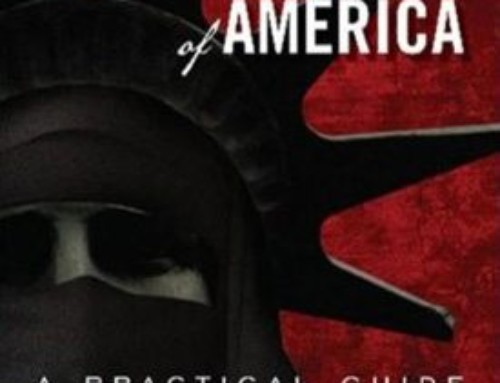Trulock’s Code Name Kindred Spirit Poses the Question: Who Stole the Bullets?
The recent indictment of Katrina Leung, a millionaire socialite who assisted U.S. intelligence efforts as a federal informant and now faces 50 years in prison if found guilty of being a double agent for the Chinese government, underscores the extent to which the Chinese have sought out access to sensitive intelligence information.
In this particular case, the accused FBI informant allegedly cultivated a prolonged intimate relationship with a FBI agent in order to obtain classified information and intelligence documents.
While the details of the Leung case merely serve as the basis of a federal indictment, what seems certain is that the penetration of our government by the Peoples Republic of China (PRC) continues to generate shock waves, not to mention new arrests.
The publication of Notra Trulock’s Code Name Kindred Spirit last December should have served as a wake-up call for detailing the lax security measures within the intelligence community and at our nuclear research labs. Although the liberal media have largely ignored Trulock’s book, recent allegations in the Leung case reinforce much of his dire warnings regarding lax national security measures.
The 1998 book The Year of the Rat (published by Regnery, a sister company of Human Events), written by two congressional security committee staffers, outlined how the Clinton Administration compromised the nation’s security in exchange for donations from the PRC and equally large sums of cash donated from defense contractors.
Trulock’s Kindred Spirit is an excellent companion to Year of the Rat, because it describes, with remarkable thoroughness, not only the five-year search for the traitors who gave the PRC our most precious nuclear weapons designs but also one man’s solitary mission to stop the further compromise of his nation’s most advanced weapons systems.
Readers should ponder the lessons these two books offer through the words of a pundit who said, “China now has a nuclear gun to our heads because we sold them the gun and then allowed them to steal the bullets.”
The Declassification Rush
Trulock’s story details the “bullets theft” and is composed of a very large cast of characters from the White House, the Department of Energy (DOE), FBI, Los Alamos National Laboratory, and the media. And in that regard, it also instructs the reader as to how the many intelligence agencies are structured.
Unfortunately, it has very few heroes save for Judicial Watch, the law firm that ultimately kept him out of jail, and our protagonist whose mission it was to protect the country from catastrophe.
Trulock writes that the “Clinton Administration will not be remembered for its stewardship of national security.” (To be fair, we learn the lab’s secrets were leaking out as far back as the Reagan Administration.)
But one of the three CIA directors, under whom Trulock served (he won’t name which one), intimated that it was understood that the Clinton Administration was prepared to manipulate and shape intelligence to serve policy interests.
Due to this mind-set, together with the distractions created by scandal after scandal, our narrator laments that the U.S. suffered “catastrophic losses” to terrorists and “may have lost forever the campaign to stop the spread of weapons of mass destruction and the missiles to deliver them.”
In May of 1994, he received his appointment as Director of Intelligence (and later Counter-Intelligence) at the Department of Energy (DOE), a position with responsibility for 2,000 people and a $35-million budget.
Upon his arrival, he found the DOE intelligence operations suffering in a climate of demoralized disarray, where the notion that espionage still represented a threat to the U.S. was openly considered a joke.
Throughout ’94 and ’95, due to the administration’s quest for a mythical rapprochement with China, he watched as the demands for openness and engagement led his first boss, Hazel O’Leary, to zealously implement the policy of “bulk” declassification.
Even at agencies such as the CIA and Pentagon, security budgets allocated millions of dollars so that millions of pages of weapons and defense data could be released to the public.
As Trulock puts it, in a Orwellian farce, the DOE office of classification actually was renamed the office of Declassification, adding that an audit of the D.C. area libraries and the Internet turned up U.S. nuclear warhead designs. Although these documents may have been 25 years old, we learn that they had perfect utility for terrorists and Third World states because they presented lesser development challenges.
Exporting Technology
On Feb. 15, 1996, in a remote Chinese province, a Long March 3B missile rose a short distance off its launch pad and then fell onto a local village. An Israeli engineer, who witnessed the disaster, saw thousands of corpses loaded in dozens of trucks and buried in mass graves.
Meanwhile, State, CIA, FBI, the Defense Department and respective intelligence arms, including the narrator’s DOE department, had given way to Ron Brown’s Commerce Department fund-raising. In addition to the massive data declassification, export control experts from the Cold War were shunted aside.
During this same period, Trulock writes China aggressively continued its nuclear weapons tests long after we and the Russians had stopped. Because the DOE was charged with assessing the PRC’s nuclear weapons programs, in April of 1995, a top-secret memo came across the narrator’s desk that began his long nightmare.
The still-classified memo stated that, based on intelligence gathered and scientific evaluations of Chinese nuclear detonations, through espionage, the PRC had stolen our latest and most advanced design, that of the ultra-lightweight W88 Trident warhead.
Two months later, the origins of which were shrouded in secrecy, a “walk-in” document was handed to the CIA with data that unmistakably proved the PRC had closed the gap in advanced nuclear weaponry with U.S. design technology. Horrified, Trulock saw that secrets stolen from his own DOE department mirrored the damage we suffered early in the Cold War, visited on us by Julius and Ethel Rosenberg.
Next Trulock painstakingly records his four-year odyssey comprised of mostly thwarted attempts to stop the further loss of weapons data and to uncover the in-house “perps.” Once his committee, composed of DOE and other intelligence-agency investigators, code-named Kindred Spirit, selected Wen Ho Lee as the main suspect, his story begins to raise many mysterious questions: Why did then-CIA Director John Deutch, choose to suppress the “walk-in document” from the rest of intelligence community or why did Janet Reno reject Trulock’s request for a wiretap of Lee’s phone? And perhaps more significantly, why was there no urgency anywhere in the administration?
He asks, “Could it be that Wen Ho Lee, who was one of its minor agents, caused the FBI brass to fear a major head-rolling scandal because it had been ‘doubled?’”
After years of foot-dragging, by early 1999, the FBI had as evidence against Lee two failed polygraph tests and proof, through back-up servers, that he had downloaded massive amounts of W88 weapons-related data to a less secure network where he then transferred much of it to ten portable computer tapes, seven of which remain missing today.
Turning the Tables
During the trial the author chronicles how Lee’s legal team skillfully employed the Mark Fuhrman defense—successfully accusing an already race-obsessed government generally and Trulock specifically—of unfairly targeting the Asian-American community.
Wen Ho Lee’s account as offered in his book, My Country Versus Me, ghostwritten by Helen Zia, is striking for its simplistic narrative and otherwise shallow appeal in portraying the author as a victim of racial scapegoating. The book contains neither a bibliography nor single footnote. (By comparison, Trulock’s book is corroborated by 40 pages of appendix, bibliography and footnotes.)
The reader of Kindred Spirit learns that, in the wake of the impeachment scandal, the Clinton Administration was so desperate for a Chinese foreign-policy win, the administration slow-rolled the investigation by years and ultimately sided with Lee.
To this day, in talking to Trulock, he concedes that he does not know for sure it was Lee who passed the warhead secrets. But sadly, what we learn in Kindred Spirit is that by the mid-1990s, the PRC was in possession of our latest weapons technology.
Trulock’s situation is similar to that of the lead character in the movie Gladiator, where events for the protagonist just go from bad to worse. The good news is that Trulock survived the extensive ordeal where he, like the first-century Roman general, became the target of his own government’s wrath.
NOTE: Publication: Human Events





